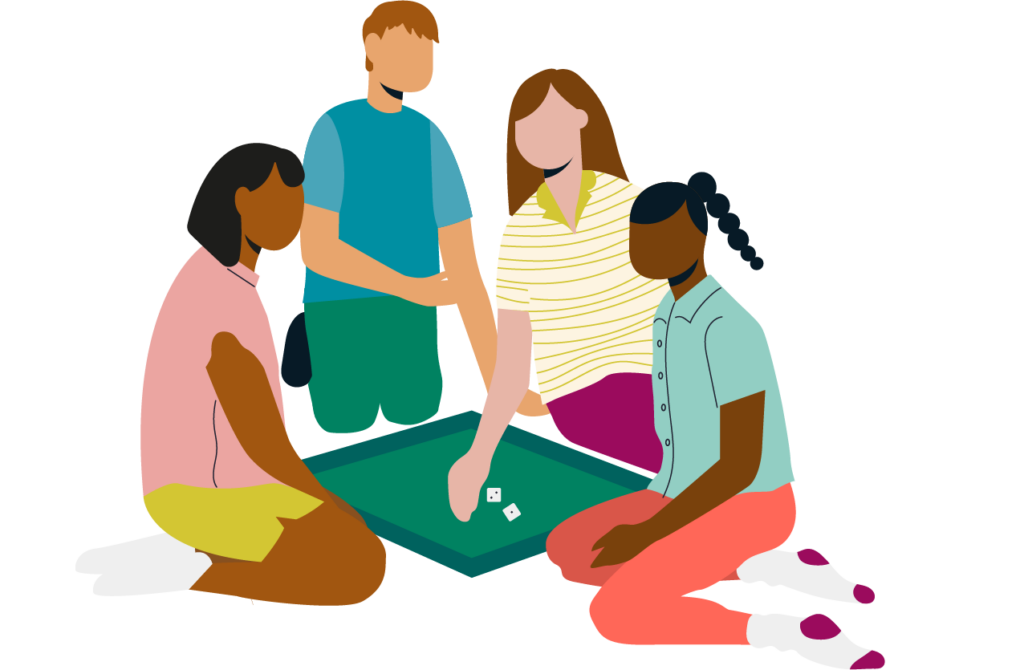Supporting play skills - activities to try
Play is one of the main ways children learn. Children develop and practise a range of skills during play, including attention, language speech, social and emotional skills.
- Follow your child’s lead by following what they want to do. Try to avoid telling you child what to do or play with. This helps to show the child that you are interested and helps you to keep the play at their level.
- Use comments rather than questions during play. This will help you to follow your child’s play, rather than leading them and will help them to learn language. Use these comments throughout the day to talk about what you are doing. For example, what you can see, what’s on the shopping list.
- Involve your child in everyday activities. When you’re washing up, let your child join in – for example, by washing the saucepan lids. When you cook, show them what you’re doing and talk to them as you’re working. By making what you’re doing fun and interesting for your child, you can get your household jobs done while they’re learning.
- Getting them involved in the things you do will teach them about taking turns to help and being independent. They’ll also learn by copying what you do.
- Get together lots of different things for your child to look at, think about and do.
- Give your child plenty of opportunities to use their body by running, jumping and climbing, especially if you don’t have much room at home.
- Try and set aside 5 minutes of special time per day to sit and play with your child, giving them your full attention. During this time, follow their play and use comments to narrate what they and you are doing.
- TV: It’s best to limit your child’s daily TV time to no more than half an hour for under-2s and an hour for 3- to 5-year-olds. TV can entertain your child and give you a bit of time to do other things. Try not to have it on all the time, though. Always know what your child is watching. When possible, watch with your child, so that you can talk together about what you’re watching.
- Reading: Start looking at books with your baby from a young age. Reading provides an opportunity to bond with you which is beneficial for their emotional and social development. Sitting and listening to a story with you is also really helpful to develop their attention skills. Children benefit from hearing you read even before they are talking. Listening allows them to hear a range of words, sounds and rhythms. Try changing the words in a book so that they are more suitable for the level your child is at. For example, if the book uses long sentences, try to use short phrases to describe the pictures instead.
- Rattles: Wash out a plastic screw-top bottle and put dried lentils, beans or rice inside. Shake it around so your child can hear it making a noise. Make two rattles so that you can do this together or try and take turns shaking the tattle.
- Play with water: This could be in the bath, paddling pool or at the sink in a plastic bowl.
- Pretend cooking: Use a bowl and spoons to measure small quantities of “real” ingredients (flour, lentils, rice, sugar, custard powder). You and your child can mix them up with water in bowls or egg cups.
- Teddy bear’s picnic: Use toy teddies or animals and pretend or real food. Set up a teddy bear’s picnic and pretend to eat and drink food. Pretend to feed the teddies and talk to them. This can help your child to develop pretend play skills.
- Sock puppets: Use socks and envelopes to make hand puppets. Draw faces on them or stick things on to make your own characters. Get the puppets to “talk” to each other, or to you and your child.
- Dressing up: Collect old hats, bags, gloves, scarves, nighties, lengths of material, tea towels and curtains. Ask friends and relatives or try jumble sales. Paper plates or cut-up cereal packets make good masks. Cut slits for the eyes and attach them to your face with string or elastic.
